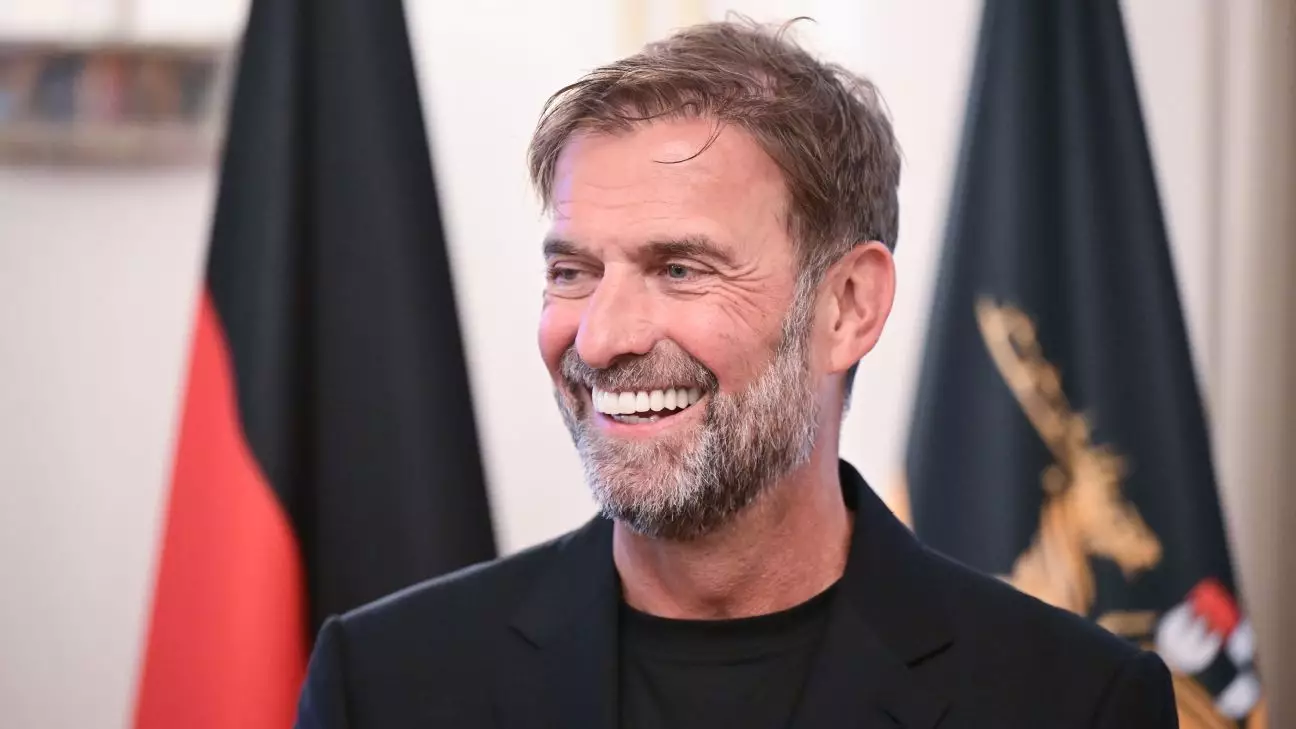In the world of football, few figures resonate as strongly as Jürgen Klopp. His charismatic persona and effusive laugh have made him not only a successful manager but also a beloved public figure in Germany. However, after nearly a decade of managing in the English Premier League, the recent announcement of Klopp’s role as “global head of soccer” for Red Bull raised eyebrows and ignited debates within the German football community. This article delves into the implications of Klopp’s new appointment, the contrasting perceptions in England and Germany, and the broader sociocultural dynamics at play.
Klopp’s Brand Power and Commercial Appeal
Klopp’s ability to sell products is remarkable, turning him into a household name beyond the realm of sports. His associations with brands spanning exercise bikes, chocolate bars, and even cars depict a man whose influence transcends typical athletic acclaim. It is no surprise, then, that Red Bull sought him out in their quest to strengthen their global football presence. Many might ponder why a man so deeply influential would opt to affiliate with a company viewed with skepticism by traditional football supporters in Germany. This partnership suggests that even the most beloved figures can be pragmatically swayed by lucrative offers that promise other benefits, such as collaborative environments with colleagues from previous ventures.
The core of the backlash against Klopp’s decision lies in Red Bull’s controversial ascent in German football. Founded in 2009 through the acquisition of an existing club, RB Leipzig bucked the traditional ownership structure common in Germany, allowing Red Bull to maintain significant control that excludes the average fan. Many view the franchise as a corporate entity eroding the values inherent in German football culture. For Klopp, a figure often seen as the “people’s man,” aligning with RB can undermine his image as a champion of traditional football values. His acceptance of this role could be regarded as a betrayal in the eyes of his most passionate supporters.
Cultural Divides: England vs Germany
In England, Klopp’s decision has met with a more forgiving perspective. Fans and analysts alike recognize his right to pursue his future without the burden of judgment. This contrast is telling; while Germany prides itself on preserving the foundational values of the sport, England is perceived as more accommodating of managerial mobility and commercial partnerships. German football fans, with their romanticized notions of the game, face a defensive reckoning as they witness Klopp’s former rivals and friends become intertwined with an organization they view with disdain.
The rejection of Red Bull by many genuine fans echoes a broader hesitation towards commercialization and mass-market appeal. This divergence is neatly encapsulated by the reactions seen in the German media, where the sentiment on Klopp’s move oscillated between critical dismay and grudging acceptance. A clear divide emerged: while many traditionalists were disheartened, others saw an opportunity for growth in the evolving landscapes of modern football infrastructure.
The ongoing discourse reflected in the German press serves to highlight a surprising reality—Klopp may be viewed through different lenses depending on the country of footballing heritage. His transition to a corporate manager emphasizes the ongoing debate about the changing fabric of football as it grapples with modernity versus tradition. There is a palpable tension among fans, as the sport they revered becomes increasingly commercialized, leading to a cultural shift not only in team management but also in fan engagement and loyalty dynamics.
At the same time, the reactions to Klopp’s new position signal a growing recognition among fans that part of football’s evolution involves embracing innovation, even if that means temporary compromises regarding traditional affiliations. Therein lies Klopp’s pivotal role: will he be able to meld these divergent attitudes into a cohesive strategy that enhances the appeal of Red Bull whilst preserving the essence of the game?
As Jürgen Klopp embarks on this new venture with Red Bull, it remains to be seen how this relationship will transform both his image and the perception of Red Bull within the German football landscape. While the backlash signifies deep cultural divides, it also represents an opportunity to reflect on the future of football and its fans. Efforts to bridge the gap between past values and modern realities could ultimately reshape the game as we know it. For Klopp, the upcoming journey may not just redefine his career but also impact the very fabric of football culture in Germany, posing a question: can commercial interests coexist with the cherished traditions of the sport? Only time will tell.

